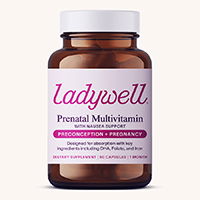Ashwagandha
(Withania somnifera)
Ashwagandha has been the subject of several clinical studies focusing on its effects on hormone balance in women. These studies collectively suggest that Ashwagandha may help balance hormones, reduce stress, and improve overall well-being.
Impact on Sleep, Food Cravings, and Stress Hormone Regulation:
Ashwagandha is known for its adaptogenic properties, which help manage stress by reducing cortisol levels. This reduction in cortisol can indirectly support hormonal balance, particularly beneficial for women experiencing stress-related hormonal issues.
One randomized, double-blind, placebo-controlled trial examines Ashwagandha's effects on stress, sleep, and food cravings. Participants take 700 mg of Ashwagandha daily for 30 days. The study uses validated scales to measure changes in perceived stress, sleep quality, and eating behaviors, providing evidence of Ashwagandha's adaptogenic properties.
https://clinicaltrials.gov/study/NCT05430685
https://www.mdpi.com/1422-0067/24/22/16513
https://pubmed.ncbi.nlm.nih.gov/31517876/
https://journals.lww.com/md-journal/fulltext/2019/09130/an_investigation_into_the_stress_relieving_and.67.aspx
Positive Effect on The Endocrine System, Menstrual Health, Reproductive System, and Fertility:
The results of the research show that Ashwagandha can have a positive effect on the functioning of the endocrine system, including improving the secretory function of the thyroid gland, normalizing adrenal activity, and multidirectional improvement on functioning of the reproductive system.
The main mechanism of action in the latter appears to be based on the hypothalamus-pituitary-adrenal (HPA) axis, as a decrease in cortisol levels and an increase in hormones such as luteinizing hormone (LH) and follicle-stimulating hormone (FSH) in men were found, which results in stress level reduction and improvement in fertility.
Research indicates that ashwagandha can help regulate menstrual cycles by modulating reproductive hormones such as FSH, LH, estrogen, and progesterone. It also shows promise in improving fertility by increasing antioxidant enzyme production, protecting eggs from oxidative stress, and enhancing cervical mucus quality.
In light of these findings, it is clear that Ashwagandha holds significant promise as a natural remedy for various health concerns, especially those related to the endocrine system.
https://pubmed.ncbi.nlm.nih.gov/38003702/
Hormonal Balance in Perimenopausal Women:
A study involving 91 perimenopausal women found that taking ashwagandha for eight weeks significantly increased estradiol levels and decreased levels of follicle-stimulating hormone (FSH) and luteinizing hormone (LH). This suggests that ashwagandha can help balance hormones during this transitional phase.
https://obgyn.onlinelibrary.wiley.com/doi/10.1111/jog.15030
“The results of the research show that Ashwagandha can have a positive effect on the functioning of the endocrine system, including improving the secretory function of the thyroid gland, normalizing adrenal activity, and multidirectional improvement on functioning of the reproductive system.”
NATIONAL LIBRARY OF MEDICINE
























